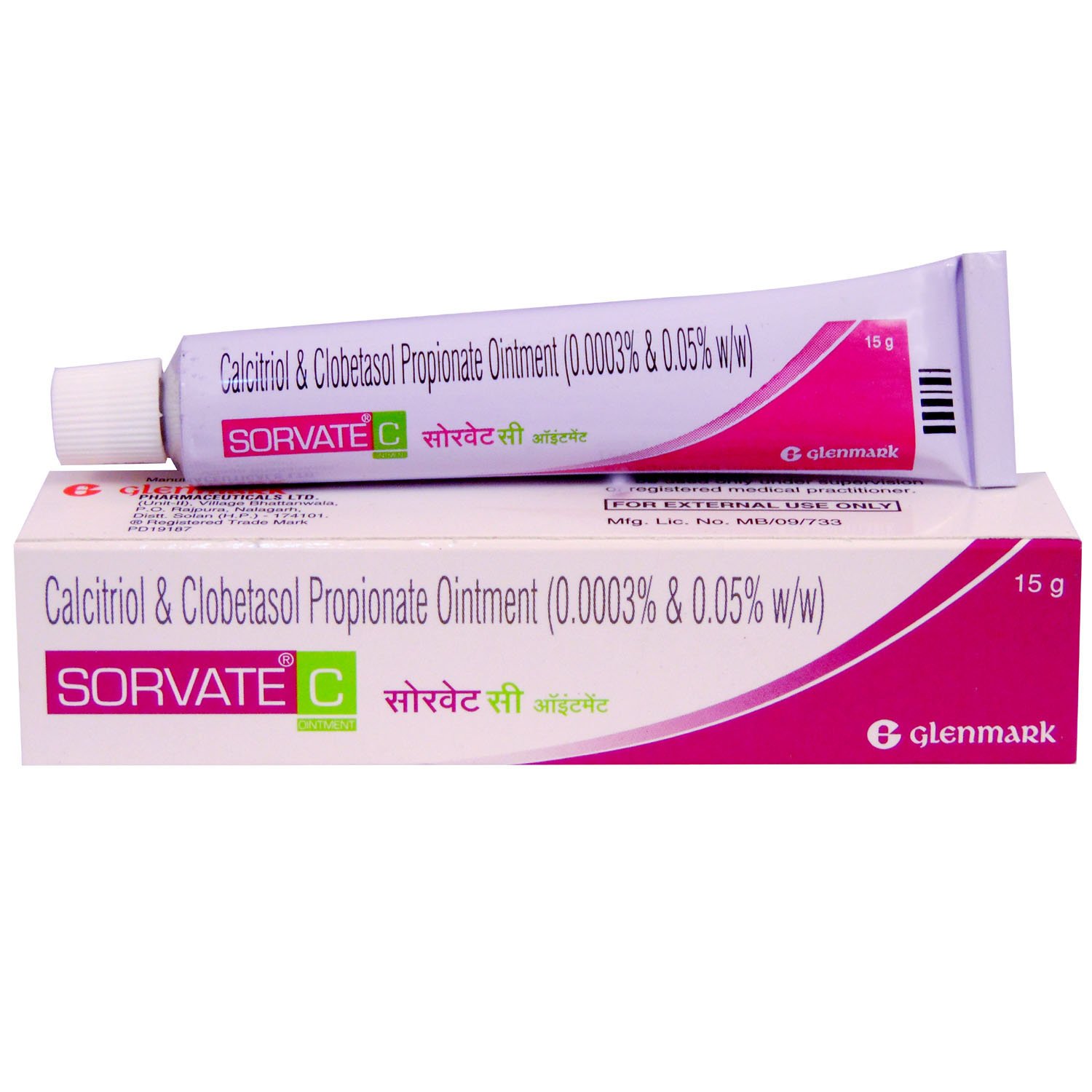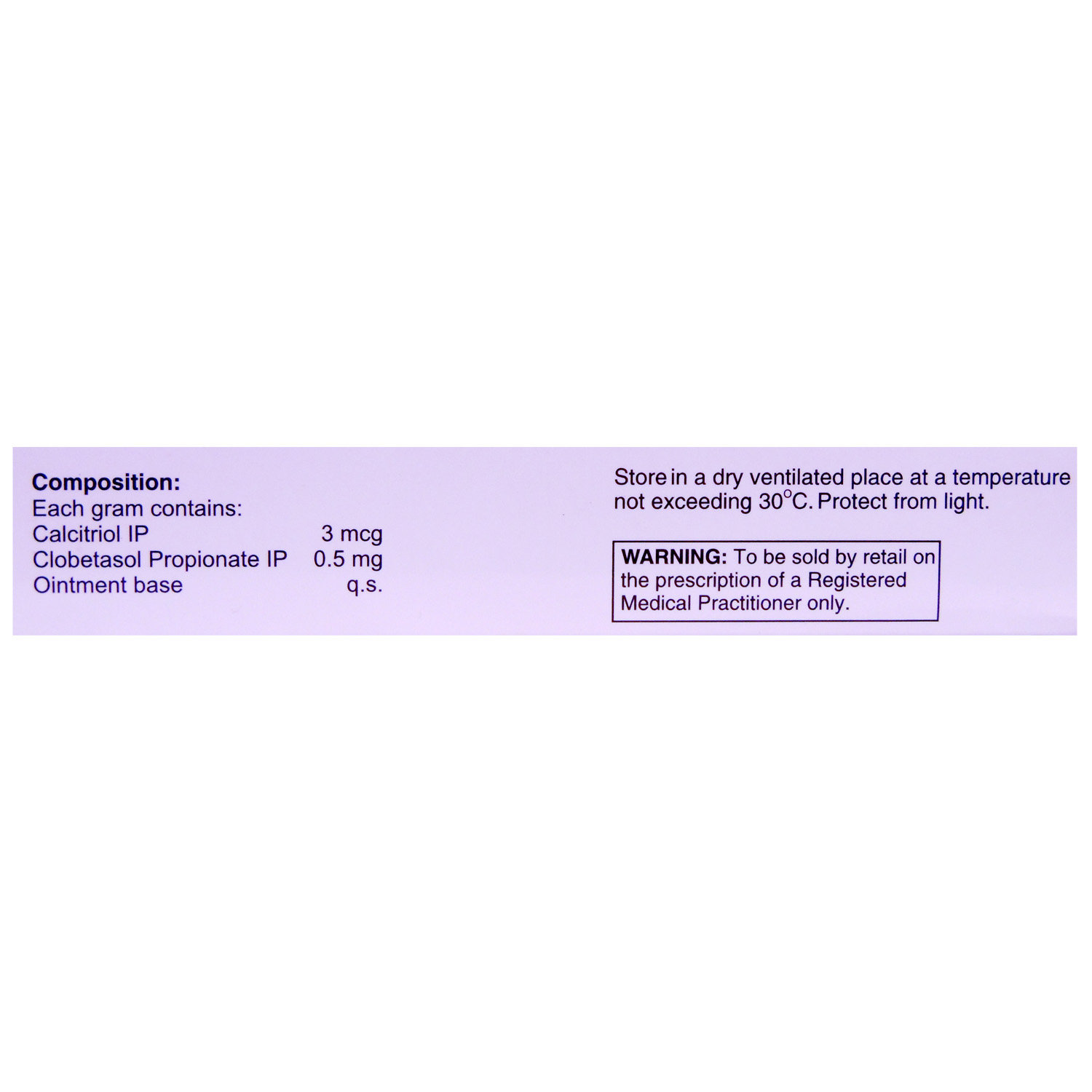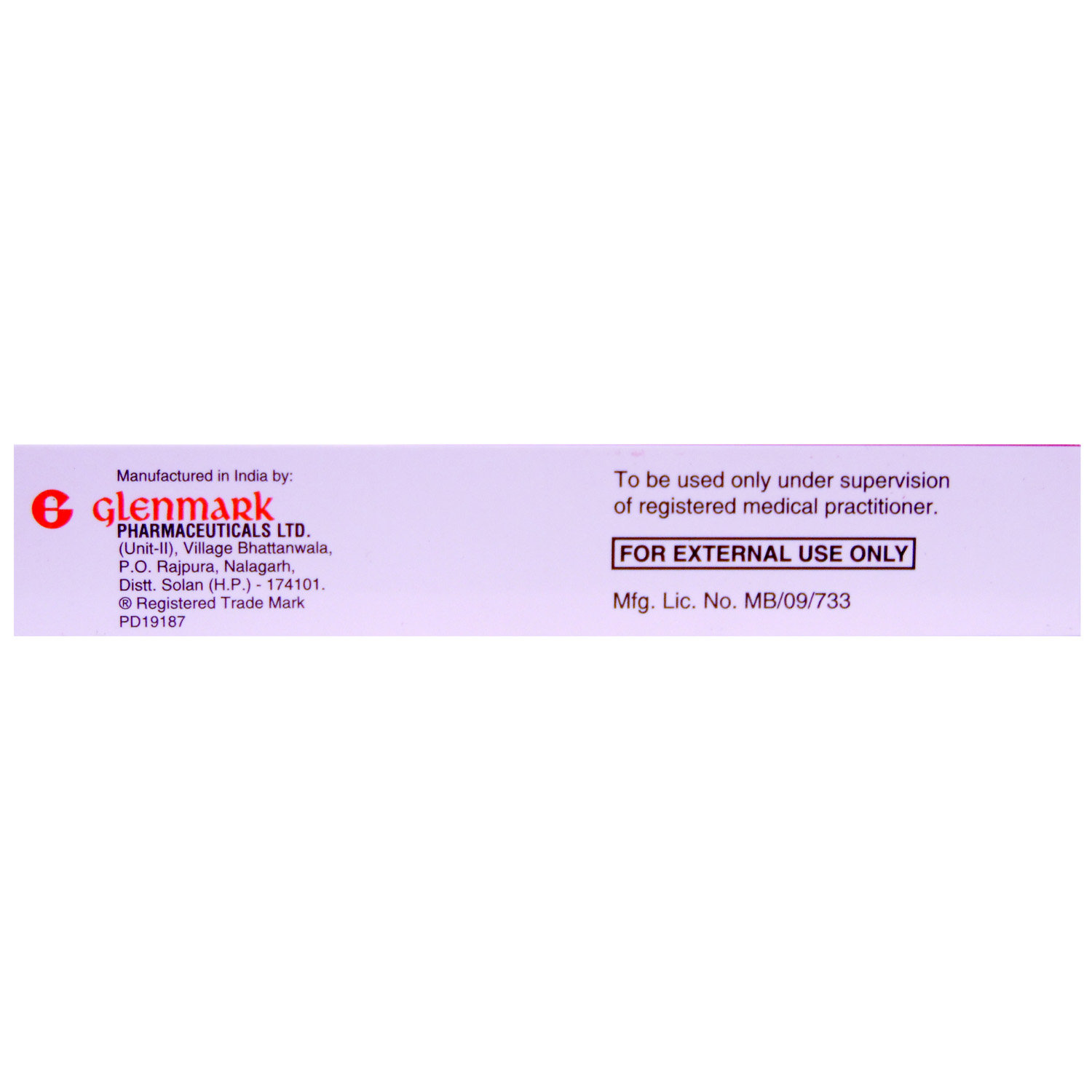Sorvate C Ointment 15 gm
MRP ₹515.5
(Inclusive of all Taxes)
₹77.3 Cashback (15%)
Selected Pack Size:15 gm
15 gm ₹464
(₹30.93 per gm)
In Stock
20 gm ₹464
(₹23.2 per gm)
In Stock
Provide Delivery Location
Online payment accepted
 Prescription drug
Prescription drugWhats That
Composition :
Manufacturer/Marketer :
Consume Type :
Expires on or after :
Return Policy :
About Sorvate C Ointment
Sorvate C Ointment belongs to a class of medicines called 'steroids' given in combination with vitamins used to treat autoimmune skin disorders like psoriasis (scaly, itchy, and red patches on the skin). It is indicated for adults and children above 12 years of age. Autoimmune skin disorders are conditions in which immune cells attack the body's healthy cells, causing inflammation. Sorvate C Ointment can suppress the immune system and reduce inflammation.
Sorvate C Ointment comprised two medicines, Clobetasol (corticosteroid) and Calcitriol (Vitamin D3). Calcitorl minimises the excessive production of skin cells that may build up and form scales on the skin. At the same time, Clobetasol is a corticosteroid medicine that restricts the production of certain chemical messengers (prostaglandins) responsible for red, swollen, itchy skin. It also suppresses the body's extreme immune response and calms the body to improve the itchy, scaly skin rash.
Sorvate C Ointment should be used as prescribed by the doctor. Common side-effects of Sorvate C Ointment are burning or stinging sensation, itching, redness, and dryness. Long-term use of Sorvate C Ointment may affect the adrenal gland and cause abnormal effects. It may also cause vision problems in some cases.
Inform your doctor if you are allergic to Clobetasol or other ingredients in this medicine. Do not use Sorvate C Ointment in children under 12 years of age without a doctor's advice. Do not use Sorvate C Ointment to treat acne, rosacea (facial flushing on and around the nose), perioral dermatitis (red or scaly rashes around the mouth), anogenital pruritis (itching around the anus or genitals), itchy, broken or infected skin which is not inflamed and widespread plaque psoriasis (except single lesions).
Uses of Sorvate C Ointment
Directions for Use
Key Benefits
Sorvate C Ointment is available only for topical use in various forms, including cream, ointment, and shampoo. Sorvate C Ointment comprised two medicines, Clobetasol (corticosteroid) and Calcitriol (Vitamin D3). Calcitorl minimises the excessive production of skin cells that may build up and form scales on the skin. Clobetasol is a corticosteroid medicine that restricts the production of certain chemical messengers (prostaglandins) responsible for red, swollen, itchy skin. The basic advantage is that Sorvate C Ointment can be applied only once daily to treat psoriasis compared to other skin preparations.
Storage
Drug Warnings
Inform your doctor before using Sorvate C Ointment if you have previously had an allergic reaction (hypersensitivity) with another steroid. If there is an overdose, clean the area thoroughly and re-apply the medicine. Apply Sorvate C Ointment carefully if you use it on eyelids or near the eyes, as there is a risk of cataracts or glaucoma if the drug enters the eye frequently. Sorvate C Ointment can penetrate the skin easily and may cause skin thinning because of repeated application. So, apply it carefully when using it on broken or damaged skin and large surface areas of the skin. Do not use Sorvate C Ointment simultaneously as other creams or ointments, such as a moisturizer. Keep at least a gap of 30 minutes between using clobetasol and any other product. Sorvate C Ointment should not be used to treat acne, rosacea, or skin rash around the mouth.
Drug-Drug Interactions
Drug-Drug Interactions
Login/Sign Up
Drug-Food Interactions
Drug-Food Interactions
Login/Sign Up
Diet & Lifestyle Advise
- Eat foods rich in quercetin (a flavonoid), such as apples, cherries, broccoli, spinach and blueberries.
- Consuming food rich in probiotics helps in developing the immune system against allergies.
- Limit food intake that might trigger allergies, such as dairy products, soy, eggs and nuts.
- Avoid consuming foods with excess sugar, as it may flare up inflammation.
- Include fruits, vegetables, whole grains, healthy fats and fish in your diet.
- Avoiding getting in contact with harsh soaps, detergents and rough fabrics.
Side Effects of Sorvate C Ointment
- Burning or stinging sensation
- Itching
- Dryness
- Swelling
- Irritation
- Redness at the application site
Habit Forming
Therapeutic Class
All Substitutes & Brand Comparisons
Drug-Diseases Interactions
Drug-Diseases Interactions
Login/Sign Up
FAQs
Sorvate C Ointment is a flammable medicine, so you need to stay away from high heat or open flame even wait for some time until your skin dries before smoking.
You are advised not to use Sorvate C Ointment if you are allergic to it. However, if you have any skin infection, eye problems like glaucoma, using any steroid medicine, liver disease, or have an adrenal gland disorder. Do not use Sorvate C Ointment to treat acne, rosacea, or a rash around the mouth.
Sorvate C Ointment may affect the growth in children and teens in some cases, so they need to be monitored regularly by dermatologists.
It is advised not to use Sorvate C Ointment at the site where you already have any infection as it may cause unwanted side effects.
It is suggested to never cover the treated area with a bandage or any covering unless specified by the doctor. It may enhance the number of medicines absorbed through the skin.
Sorvate C Ointment can bleach and lighten skin. However, the use of Sorvate C Ointment for skin lightening is not clinically established. So, it should be used only when prescribed by a doctor.
Sorvate C Ointment is not recommended for the treatment of burns. It should also be not used on broken skin or open wounds.
Sorvate C Ointment may increase blood sugar levels. Consult your doctor immediately if you experience any abnormal signs or symptoms while using Sorvate C Ointment.
Using too much of Sorvate C Ointment or using it for a long time may increase your risk of having adrenal gland problems.
Sorvate C Ointment may make you more sensitive to the sun. Limit your time in the sun. Avoid tanning booths and sunlamps. Use sunscreen and wear protective clothing when outdoors.
Sorvate C Ointment comprised two medicines, Clobetasol (corticosteroid) and Calcitriol (Vitamin D3). Calcitorl minimises the excessive production of skin cells that may build up and form scales on the skin. At the same time, Clobetasol is a corticosteroid medicine that restricts the production of certain chemical messengers (prostaglandins) responsible for red, swollen, itchy skin. It also suppresses the body's extreme immune response and calms the body to improve the itchy, scaly skin rash.
Special Advise
- Your doctor may examine your skin, scalp, and nails and take a small sample of skin to examine under biopsy to determine the type of psoriasis.
- Sorvate C Ointment is not recommended to treat severe psoriasis with pus, skin peeling, and severe redness.
Disease/Condition Glossary
Psoriasis: Psoriasis is a skin condition that causes red, flaky, crusty patches of skin covered with silvery scales. The severity of psoriasis varies greatly from person to person. For some, it's just a minor irritation, but for others, it can majorly affect their quality of life. Psoriasis is a long-lasting (chronic) disease that usually involves periods when you have no symptoms or mild symptoms, followed by periods when symptoms are more severe.

Have a query?
Alcohol
Safe if prescribed
Sorvate C Ointment may not interact with alcohol.
Pregnancy
Consult your doctor
Pregnant women should consult a doctor before using the Sorvate C Ointment.
Breast Feeding
Consult your doctor
Sorvate C Ointment should be used with caution in breastfeeding mothers. However, if your doctor prescribes and Sorvate C Ointment is applied on the chest, ensure the affected area does not come into contact with the baby's mouth while breastfeeding.
Driving
Safe if prescribed
Sorvate C Ointment does not show any effect on driving. But contact a doctor if you get any problems with your vision. Do not drive if you have problems with your eyesight after using the Sorvate C Ointment.
Liver
Consult your doctor
Sorvate C Ointment should be used with caution in patients with liver diseases.
Kidney
Consult your doctor
Sorvate C Ointment should be used in patients with kidney diseases only when prescribed by a doctor.
Children
Safe if prescribed
Sorvate C Ointment should not be used in children under 12 years of age without a doctor's advice.











